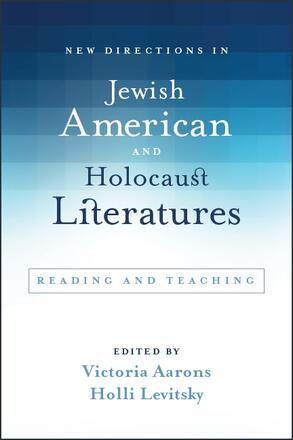
New Directions in Jewish American and Holocaust Literatures
Reading and Teaching
Alternative formats available from:
Surveys the current state of Jewish American and Holocaust literatures as well as approaches to teaching them.
Description
What does it mean to read, and to teach, Jewish American and Holocaust literatures in the early decades of the twenty-first century? New directions and new forms of expression have emerged, both in the invention of narratives and in the methodologies and discursive approaches taken toward these texts. The premise of this book is that despite moving farther away in time, the Holocaust continues to shape and inform contemporary Jewish American writing. Divided into analytical and pedagogical sections, the chapters present a range of possibilities for thinking about these literatures. Contributors address such genres as biography, the graphic novel, alternate history, midrash, poetry, and third-generation and hidden-child Holocaust narratives. Both canonical and contemporary authors are covered, including Michael Chabon, Nathan Englander, Anne Frank, Dara Horn, Joe Kupert, Philip Roth, and William Styron.
Victoria Aarons is O.R. & Eva Mitchell Distinguished Professor of English at Trinity University. She is the author of several books, including Third-Generation Holocaust Narratives: Memory in Memoir and Fiction and The Cambridge Companion to Saul Bellow. Holli Levitsky is Professor of English and Director of Jewish Studies at Loyola Marymount University and Affiliated Professor at the University of Haifa. She is the author of Summer Haven: The Catskills, the Holocaust, and the Literary Imagination.
Reviews
"A valuable addition to the critical and pedagogical materials of scholars and teachers in Judaism and the Holocaust. It raises important questions about ethics, responses, and readings in a breadth of literary texts." — H-Net Reviews (H-Judaic)
"…provides significant insights into current literary and teaching approaches to both Jewish American and Holocaust literatures … New Directions will be of particular interest to students and scholars of Holocaust and Jewish-American literatures, ethnic literatures in America, American literature, Jewish studies, and ethics." — Journal of Modern Jewish Studies
"The range of critical approaches and authors examined makes this a valuable resource for scholars and teachers. Particularly in this troubling political moment, meditations on the new and continued relevance of Jewish American and Holocaust literatures for scholars, students, and the American public in general are invaluable." — Sharon B. Oster, author of No Place in Time: The Hebraic Myth in Late Nineteenth-Century American Literature